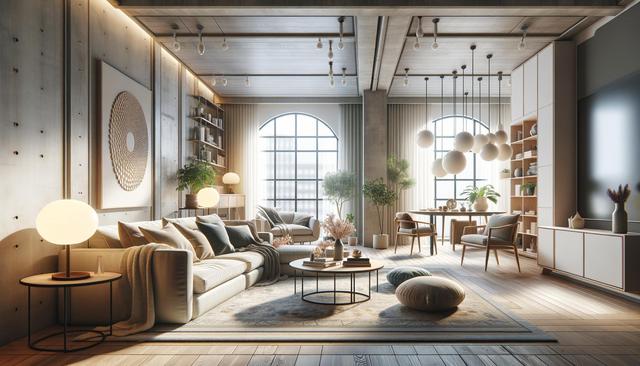
Explore the Future of Design: A Guide to Free Online Interior Design Courses with High-Tech Tools
Discovering the World of Free Online Interior Design Courses
In the dynamic realm of interior design, staying updated with the latest trends and technology is crucial. Fortunately, the digital age offers a wealth of opportunities for budding designers to hone their skills without financial strain. Free online interior design courses stand out as a valuable resource, providing a structured pathway to learning at your own pace. These courses often include video tutorials, interactive assignments, and virtual workshops, making them an interactive and engaging way to delve into the world of interior design. By leveraging these resources, you can explore various facets of design, from fundamental principles to advanced techniques, without the burden of costly tuition fees.
High-Tech Tools for Modern Interior Designers
Modern interior design is intertwined with technology, and understanding how to use high-tech tools is essential for any designer. Online courses frequently cover essential software used in the industry, such as computer-aided design (CAD) programs, 3D modeling tools, and virtual reality platforms. These technologies not only streamline the design process but also offer creative possibilities that were previously unimaginable. By mastering these tools, designers can create realistic models, experiment with different styles and layouts, and even offer virtual tours of their projects. This technological proficiency sets you apart in the competitive design landscape and equips you with the skills needed to meet client expectations.
Innovative Design Concepts and Trends
Keeping up with innovative design concepts is crucial for any interior designer aiming to create spaces that are both functional and aesthetically pleasing. Free online courses often explore the latest trends, such as minimalism, biophilic design, and adaptive reuse. These courses encourage participants to think creatively and develop a unique design style. By understanding and applying these concepts, designers can create spaces that resonate with clients on a personal level. Additionally, courses that highlight global design trends provide insights into how cultural influences shape design, enabling designers to incorporate diverse elements into their projects.
Integrating Eco-Friendly Practices
With growing awareness of environmental issues, incorporating eco-friendly practices into design projects has become increasingly important. Many online courses emphasize sustainable design principles, teaching designers how to select materials and methods that reduce environmental impact. Key topics often covered include recycling and upcycling, energy-efficient lighting, and the use of natural and non-toxic materials. By integrating these practices, designers can contribute to the creation of healthier living spaces and reduce the carbon footprint of their projects. This knowledge not only benefits the environment but also enhances the marketability of designers who are seen as socially responsible and forward-thinking.
Adapting to Flexible Learning
One of the most appealing aspects of online interior design courses is their flexibility. Unlike traditional education formats, these courses allow you to learn at your own pace and on your own schedule. Whether you are a full-time professional or a busy parent, the ability to access course materials anytime, anywhere is a significant advantage. Online platforms often provide discussion forums, personalized feedback from instructors, and peer networking opportunities, enriching the learning experience. This adaptability is perfect for those seeking to balance life commitments while advancing their design career.
Conclusion: Embracing the Future of Interior Design Education
As the interior design industry evolves, staying ahead requires continuous learning and adaptation. Free online courses provide an accessible entry point into this dynamic field, enabling designers to expand their skill set and embrace new technologies and trends. By taking advantage of these resources, aspiring and established designers alike can enhance their creativity, efficiency, and sustainability in their projects. As you embark on this educational journey, remember that the future of design is not only about aesthetics but also about creating spaces that are innovative, sustainable, and reflective of diverse cultural influences.